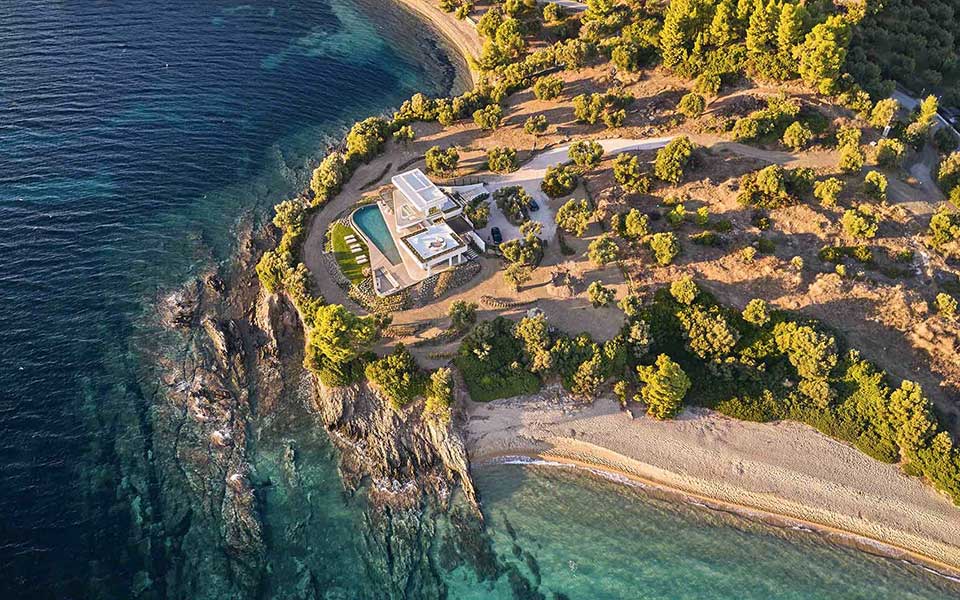The amount spent by a Belgian businessman a few weeks ago to buy a newly built luxury country villa, with a swimming pool, in the area of Agios Nikolaos in Crete, came to no less than 2.2 million euros. The buyer is understood to be planning to utilize the luxury property both for his own personal use but also to exploit it as a short-term rental, charging a weekly fee of €20,000 in the summer months.
Transactions of such scope and orientation – with a dual objective (ownership and exploitation) – have multiplied this year in the domestic market of luxury holiday homes. In fact, some investors from abroad go a step further, as they look for land for the development of luxury holiday complexes, multiplying their financial footprint and added value to the Greek economy compared to a simple purchase and sale.
For example, one German businessman who builds energy autonomous yachts that ate powered by solar energy is planning something similar in the real estate market, with the primary goal of exploiting his existing clientele.
“This man has developed a very special business and wishes to expand it on land as well, implementing an investment of €50 million. Its aim is to acquire land on the coast of Preveza, where a model high-luxury settlement will be developed, consisting of 20 homes with bioclimatic characteristics and full energy and irrigation autonomy,” says Giorgos Gavrielidis, managing director and founder of Elxis, a brokerage and advisory services company specializing in luxury holiday homes.
Each property is expected to be sold for an amount of €2-3 million. The businessman in question has already acquired a property in the area south of Preveza, from where he is planning his next moves.
“Foreign investors never left the Greek luxury holiday home market, not even during the pandemic. What has changed, however, is that those investing nowadays have a full awareness and understanding of the advantage that the country offers, in terms of price levels and the property quality offered in comparison to southern Europe rivals, such as Spain, Italy, Croatia and Portugal,” notes Gavrielidis.
This article was previously published at ekathimerini.com.












